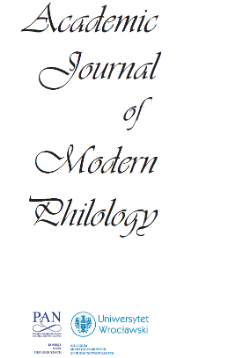Entre le déjà vu et le déjà ditLe ludique et les arguments ad hominem dans les mèmes Internet
Between déjà vu and déjà ditPlayfulness and ad hominem arguments in the internet memes
Author(s): Elżbieta BiardzkaSubject(s): Language and Literature Studies, Semiotics / Semiology, Communication studies
Published by: Komisja Nauk Filologicznych Oddziału Polskiej Akademii Nauk we Wrocławiu
Keywords: internet memes; argumentation ad hominem; quote
Summary/Abstract: Our study deals with relatively short statements embedded in semiotically complex digital messages, both pictorial and verbal, which are created and exchanged by Internet users thanks to on-line generators. These messages are called internet memes (IM). We treat them as a new kind of on-line speech (determined by the so-called participatory web 2.0 digital medium), semiotically heterogeneous (both graphic and verbal in nature), putting into circulation comments on events and especially on the political word (slogans, catchphrases, slip of the tongue). These IM are subject to various verbo-graphic mutations. IM are thus endowed with a content that takes the form of a micro-political commentary, lapidary, playful and carnivalesque (Bakhtine 1970), characterised by a form of argumentation that can be said peripheral, because it refers more to the political person than to the political issues themselves (Gauthier 1992 et 1995, Amossy 1999, Perelman and Olbrecht-Tyteca 1970). IM are peripheral micro-argumentation acts of descriptive character, the impact of which is cumulative. In our study, we show that the funny side of the memes is a complex verbo-pictorial strategy centred on big political actors and based on the ad hominem arguments.
Journal: Academic Journal of Modern Philology
- Issue Year: 2019
- Issue No: 8
- Page Range: 23-40
- Page Count: 18
- Language: French

